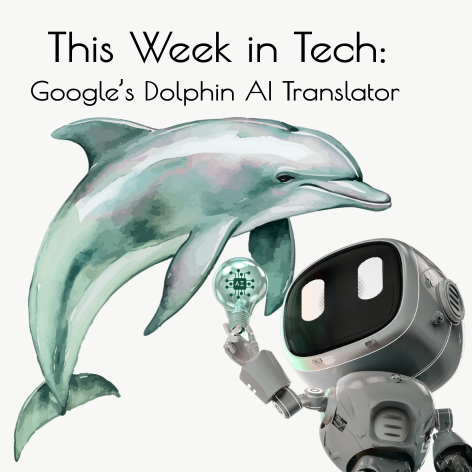The New Era of AI in 2025: From Gemini 3 to Creative AIs
Learn about the best AI tools for 2025, including Nano...
We use cookies for our website to give you the most relevant experience by remembering your preferences. By clicking “accept”, you consent to use of ALL the cookies
This website uses cookies to improve your experience while you navigate through the website. Out of these, the cookies that are categorized as necessary are stored on your browser as they are essential for the working of basic functionalities of the website. We also use third-party cookies that help us analyze and understand how you use this website. These cookies will be stored in your browser only with your consent. You also have the option to opt-out of these cookies. But opting out of some of these cookies may affect your browsing experience.
Necessary cookies are absolutely essential for the website to function properly. These cookies ensure basic functionalities and security features of the website, anonymously.
| Cookie | Duration | Description |
|---|---|---|
| cookielawinfo-checkbox-functional | 11 months | This cookie is set by GDPR Cookie Consent plugin. The cookie is used to store the user consent for the cookies in the category “Analytics”. |
| cookielawinfo-checkbox-functional | 11 months | The cookie is set by GDPR cookie consent to record the user consent for the cookies in the category “Functional”. |
| cookielawinfo-checkbox-necessary | 11 months | This cookie is set by GDPR Cookie Consent plugin. The cookies is used to store the user consent for the cookies in the category “Necessary”. |
| cookielawinfo-checkbox-others | 11 months | This cookie is set by GDPR Cookie Consent plugin. The cookie is used to store the user consent for the cookies in the category “Other. |
| cookielawinfo-checkbox-performance | 11 months | This cookie is set by GDPR Cookie Consent plugin. The cookie is used to store the user consent for the cookies in the category “Performance”. |
| viewed_cookie_policy | 11 months | The cookie is set by the GDPR Cookie Consent plugin and is used to store whether or not user has consented to the use of cookies. It does not store any personal data. |
Functional cookies help to perform certain functionalities like sharing the content of the website on social media platforms, collect feedbacks, and other third-party features.
Performance cookies are used to understand and analyze the key performance indexes of the website which helps in delivering a better user experience for the visitors.
Analytical cookies are used to understand how visitors interact with the website. These cookies help provide information on metrics the number of visitors, bounce rate, traffic source, etc.
Advertisement cookies are used to provide visitors with relevant ads and marketing campaigns. These cookies track visitors across websites and collect information to provide customized ads.
Other uncategorized cookies are those that are being analyzed and have not been classified into a category as yet.
Cyberia Tech, Inc. respects your privacy. This Privacy Policy explains how we collect, use, and share your information. By using our services, you agree to this policy. If any other agreements conflict with this Privacy Policy, the terms of those agreements prevail.
Cyberia Tech complies with the EU-US and Swiss-US Privacy Shield Frameworks for handling personal data from the EEA, UK, and Switzerland. In case of any conflict, the Privacy Shield Principles prevail. Learn more at Privacy Shield. Key Definitions
Information linked to an individual, transferred from the EEA, UK, or Switzerland to the U.S.
Data revealing race, religion, health, sexual orientation, and similar categories.
Effective Date: [ 2026 / 01 / 22 ]
Welcome to The Cyberia Tech ! By accessing or using our website or services, you agree to
comply with and be bound by these Terms of Use and our Privacy Policy. If you do not agree with
these terms, please do not use our Services.
Loading
0 %

In recent years, the rise of artificial intelligence has unlocked new possibilities for communication and understanding, not only between humans but across species. One of the most exciting developments in this space is the Dolphin AI Translator, an innovative system designed to bridge the gap between humans and dolphins. By analyzing dolphin vocalizations, this breakthrough technology promises to open a new chapter in interspecies communication. However, as AI continues to evolve, it raises questions about the ethical implications, creativity, and potential misuse of AI in everyday life. In this article, we’ll explore some of the most groundbreaking advancements in AI, from the Dolphin AI Translator to AI-generated voices disrupting public spaces, and how these innovations are reshaping the tech landscape.
Google has made a groundbreaking leap in AI with the unveiling of DolphinGemma, an advanced AI model developed in partnership with the Wild Dolphin Project. This innovative technology goes beyond simple sound recording; it can now decode the complexities of dolphin vocalizations. By using machine learning and a vast array of dolphin interaction data, the Dolphin AI Translator promises to unlock the mysterious language of dolphins, enabling more effective communication between humans and these intelligent marine mammals. This development marks a significant milestone in interspecies communication, offering profound implications for both scientific research and conservation efforts. As AI continues to evolve, it opens new possibilities not only in understanding animal behavior but in establishing deeper connections with the natural world.

In a peculiar incident, crosswalks in Palo Alto, Menlo Park, and Redwood City were compromised to broadcast AI-generated voices mimicking Elon Musk and Mark Zuckerberg. Instead of standard pedestrian prompts, these crosswalks played satirical messages, with Musk’s voice offering Cybertrucks for friendship and expressing loneliness, while Zuckerberg’s voice mockingly discussed AI’s societal impact. City officials have disabled the affected systems and are investigating the breach, which underscores the potential misuse of AI voice cloning technology.

Apple’s upcoming iPadOS 19 aims to make the iPad experience more akin to macOS, focusing on enhanced productivity, multitasking, and app window management. Key features include a revamped home screen allowing free placement of apps and widgets, a smarter dock that suggests apps based on user activity, and a new window system enabling natural resizing and movement of app windows. The Files app is also set to receive improvements like tagging and quick previews, bolstering the iPad’s capabilities as a work device. While these updates bring the iPad closer to a desktop experience, the operating system retains its touch-first design. Apple is expected to unveil iPadOS 19 at WWDC 2025, with a release anticipated in the fall.
In response to impending tariffs on imported technology, Nvidia has commenced domestic production of its Blackwell AI chips at a TSMC facility in Arizona. The company is also constructing supercomputer manufacturing plants in Texas, collaborating with partners like Foxconn and Wistron. This strategic move aims to bolster supply chain resilience and meet the growing demand for AI infrastructure. The initiative aligns with the Trump administration’s emphasis on revitalizing U.S. manufacturing, although some tariffs on electronics have been temporarily suspended following market volatility.
On April 14, 2025, OpenAI introduced GPT-4.1, a significant upgrade over its predecessor, GPT-4o. The new model family includes GPT-4.1, GPT-4.1 Mini, and GPT-4.1 Nano, each designed to cater to varying performance and cost requirements. Notably, GPT-4.1 supports an expanded context window of up to 1 million tokens, facilitating deeper understanding of extensive data sets. Benchmark tests reveal substantial improvements: a 21.4% increase in coding performance over GPT-4o and a 10.5% enhancement in instruction-following capabilities. The Mini and Nano versions offer faster processing and reduced costs, making them suitable for a range of applications from complex coding tasks to real-time data analysis. These advancements underscore OpenAI’s commitment to providing scalable and efficient AI solutions for developers and enterprises alike.

The advent of the Dolphin AI Translator is just one example of how AI is pushing the boundaries of what we once thought possible, enabling us to communicate with other species in ways that were once the stuff of science fiction. As we continue to see breakthroughs like this in AI-driven communication, along with innovations in chip production, software enhancements, and even AI-generated voices, it’s clear that the future holds incredible potential. However, with great power comes great responsibility. As AI continues to transform industries and societies, we must remain vigilant about its ethical use, ensuring these technologies benefit everyone and not just a select few. The journey from deciphering dolphin sounds to reshaping human interaction is just beginning — and the possibilities are endless.
You Can Get More Information!
